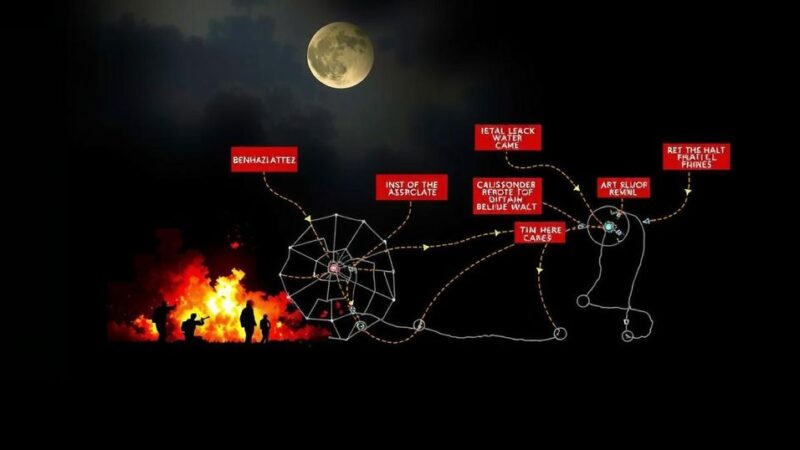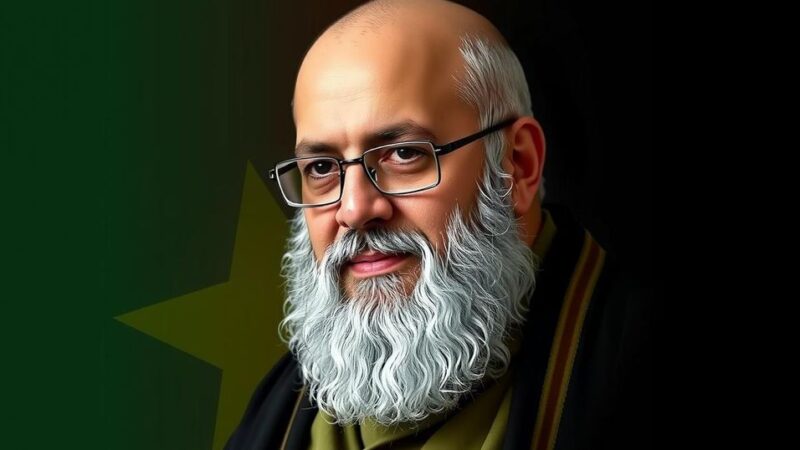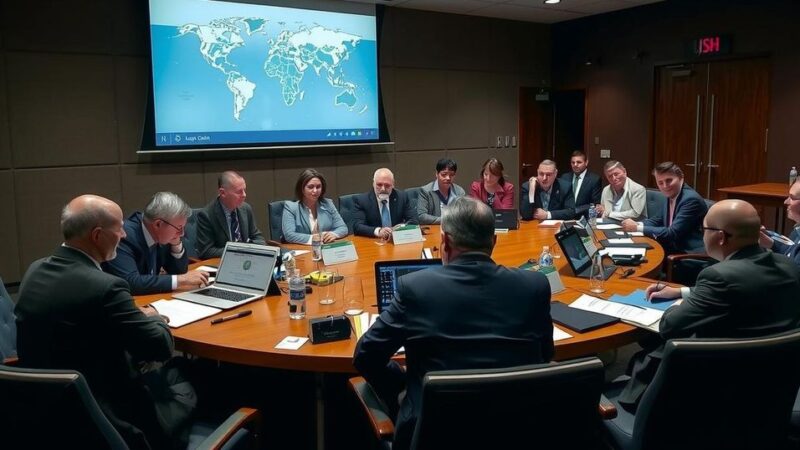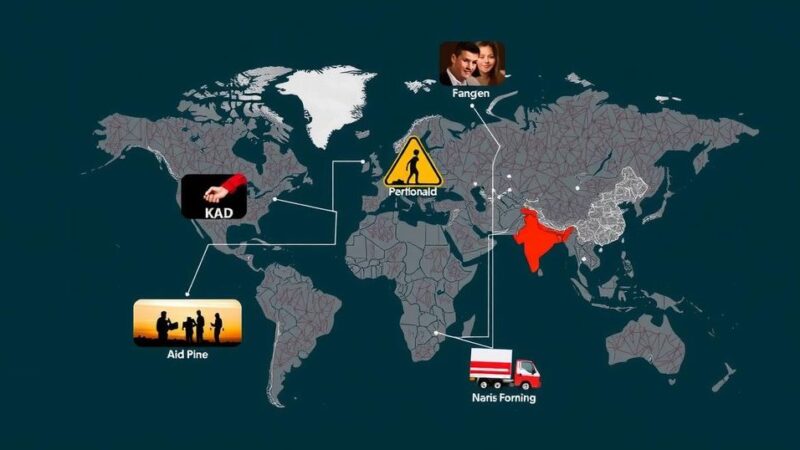Azerbaijan’s human rights situation is under severe scrutiny ahead of the UN climate talks in November, with activists and U.S. lawmakers calling for an end to alleged abuses. Reports highlight an intensified crackdown on dissent and allegations of political oppression, coinciding with calls for the release of political prisoners. Azerbaijan’s government contests these claims, framing them as part of a disinformation campaign while asserting its commitment to international dialogue on climate.
Azerbaijan faces significant scrutiny regarding its human rights practices, particularly as it approaches the hosting of UN climate talks scheduled for November. Activists and U.S. lawmakers have intensified calls for Azerbaijan to cease alleged human rights violations within civil society and against ethnic Armenians. According to a recent report from Human Rights Watch and Freedom Now, government-led repression of critics and activists in the country has intensified, exemplified by the spring arrest of Anar Mammadli, a renowned human rights advocate who has championed climate justice initiatives. The report coincides with letters from numerous U.S. legislators urging Secretary of State Antony Blinken to advocate for the release of political prisoners in Azerbaijan, a nation rich in oil and gas and strategically positioned near Russia, Iran, and Armenia. These lawmakers have alleged that Azerbaijan engaged in ethnic cleansing against Armenians in Nagorno-Karabakh last year. They referenced a State Department report that highlighted significant human rights violations, including arbitrary detentions and unlawful killings. As the COP29 climate negotiations draw near, U.S. lawmakers emphasize this summit as a pivotal opportunity to bolster regional energy security and assist Armenia in reducing reliance on Russian gas. This context underscores broader global concerns about government responses to grassroots climate initiatives that may overlook human rights considerations. Myrto Tilianaki, a senior advocate at Human Rights Watch, emphasized the critical nature of inclusivity in climate negotiations: “When civic space is actively shut down, the voices of those most affected by the climate crisis are at risk of being excluded from the negotiations.” In response to the allegations, Azerbaijan’s embassy in Washington refuted claims made in the report, asserting that all cases are processed in accordance with the law and denouncing the notion of an ongoing disinformation campaign against the country. The embassy underscored Azerbaijan’s status as a responsible member of the global community and insisted that human rights issues should not distract from its contributions to international dialogue on climate change. The Human Rights Watch report indicates that recent arrests of activists primarily stem from legislation that targets non-governmental organizations, asserting that these detentions are politically motivated and indicative of systematic repression methods utilized to stifle freedom of speech and association. Charges against individuals linked to unregistered NGOs and independent media often include serious accusations like drug possession, extremism, and treason, suggesting that these are merely pretexts for suppressing legitimate activism. Azerbaijan was selected to host this year’s climate discussions following Russia’s blockade of European bids. Notably, last year’s climate conference in the United Arab Emirates resulted in commitments to gradually transition away from fossil fuels, although Azerbaijani officials contend that fossil fuel production is compatible with climate objectives. The Azerbaijani government, rich in oil and gas reserves, has plans to significantly boost gas production within the decade. An illustrative case flagged by the Human Rights Watch report involves economist Gubad Ibadoghlu, who faces charges related to counterfeiting and extremism. Ibadoghlu has publicly criticized the mismanagement of oil revenues and has recently questioned Azerbaijan’s capacity to fulfill energy commitments to Europe. Should he be convicted, he risks a lengthy prison sentence.
The context of the article centers on Azerbaijan’s preparation to host critical UN climate negotiations amid ongoing allegations of human rights abuses. As a major oil and gas producing nation bordering several significant players in the region, Azerbaijan’s human rights record is under keen examination by international observers and activists. The scrutiny is exacerbated by reports detailing governmental repression against critics and civil society groups and by regional tensions involving ethnic Armenians.
In summary, Azerbaijan is facing intensified criticism regarding its human rights practices as it readies for the upcoming UN climate talks. Allegations of systemic oppression against dissent and ethnic minorities have prompted calls from U.S. lawmakers and human rights organizations for reform and honoring of civil liberties. While Azerbaijan defends its actions and asserts its role as a responsible host for climate discussions, the balance between its energy interests and human rights obligations remains a contentious issue as the global community anticipates further developments.
Original Source: www.mainepublic.org






